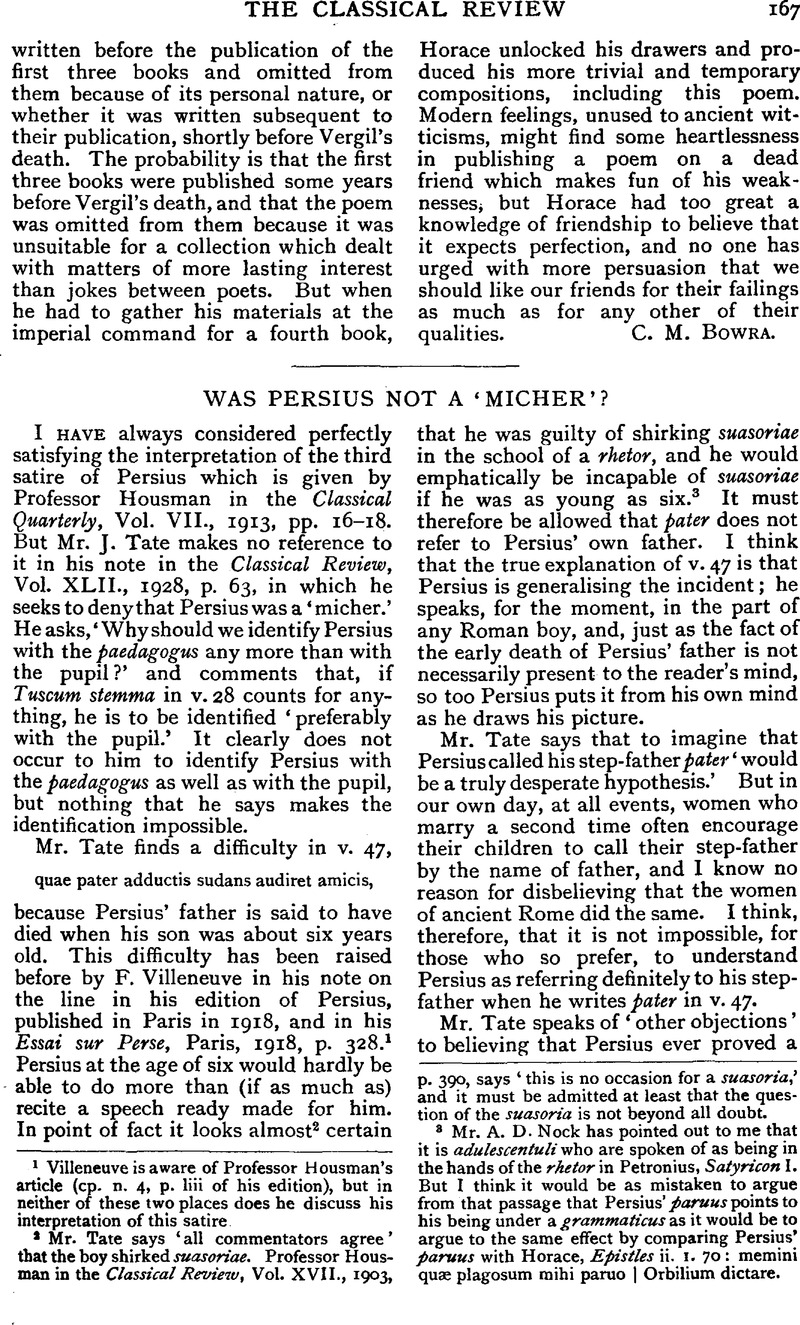No CrossRef data available.
Article contents
Was Persius not a ‘micher’?
Published online by Cambridge University Press: 27 October 2009
Abstract

- Type
- Review Article
- Information
- Copyright
- Copyright © The Classical Association 1928
References
page 167 note 1 Villeneuve is aware of Professor Housman's article (cp. n. 4, p. liii of his edition), but in neither of these two places does he discuss his interpretation of this satire
page 167 note 2 Mr Tate, says ‘all commentators agree’ that the boy shirked suasoriae. Professor Housman in the Classical Review, Vol. XVII., 1903, p. 390Google Scholar, says ‘this is no occasion for a suasoria,’ and it must be admitted at least that the question of the suasoria is not beyond all doubt.
page 167 note 3 Mr. A. D. Nock has pointed out to me that it is adulescentuli who are spoken of as being in the hands of the rhetor in Petronius, Satyricon I. But I think it would be as mistaken to argue from that passage that Persius' paruus points to his being under a grammaticus as it would be to argue to the same effect by comparing Persius' paruus with Horace, Epistles ii. 1. 70: memini quæ plagosum mihi paruo | Orbilium dictare.
page 168 note 1 It appears that Persius is guilty of shirking the recitation of pieces of his own composition, and it is interesting to find the frequent practice of such recitation condemned by Quintilian ii. 7 on the soundest educational grounds.


